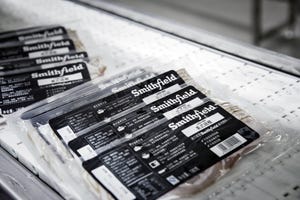For all of its many major revisions, USDA’s Grain, Inspection and Packers and Stockyards Administration’s (GIPSA) proposed rule changes don’t provide a single positive improvement to the livestock marketing process
September 22, 2010


For all of its many major revisions, USDA’s Grain, Inspection and Packers and Stockyards Administration’s (GIPSA) proposed rule changes don’t provide a single positive improvement to the livestock marketing process, states Ron Plain, University of Missouri agricultural economist.
“This represents a radical change with huge implications in the way we sell slaughter livestock in the United States,” he remarks. “It also greatly affects the production contracts that we use for producing our livestock and poultry in the United States.
“And these proposed changes are not coming from court decisions, but from bureaucrats, who think this set of rules and regulations will provide answers in lieu of an economic study…This is not the way we envision that our democracy is supposed to work,” Plain asserts.
The upshot is that proponents who have been calling for revamping the GIPSA rule, and the 2008 Farm Bill requires updating it, “will not get what they think they are going to get,” he adds.
For those backers of bolstering the spot market – selling farm commodities when they are ready for slaughter rather than having a contract or some other type of marketing agreement – GIPSA provisions tighten contract requirements. But Plain charges that will only serve to concentrate contracts among the larger producers and leave the spot market to the smaller producers.
Currently, only 7% of the barrows and gilts are sold on the spot market, the lowest figure ever recorded, Plain explains. The level was 62% of the hogs in 1994, when spot market sales were first tracked. But it has been on a steady decline ever since.
Reason being both producers and packers like the security of a contract guaranteeing a market for their product and a steady supply of product to process and sell. Lenders also feel more comfortable financing producers who have contracts to market their hogs.
Another section in the proposed rule says packers can’t sell hogs to another packer. Smithfield Foods is both a producer and a packer; its large Circle 4 Farms operation in Utah sells market hogs to Clougherty Packing in California because it represents the closest market. If that won’t be allowed, Smithfield could choose to buy the plant, increasing industry concentration instead of decreasing it as proponents want.
The same holds true for Smithfield selling cull sows. That is a specialized market and Smithfield does not own sow kill plants, raising the question how it is supposed to dispose of cull sows short of investing in a plant and further concentrating the swine industry.
Triumph Foods is a producer-owned packing plant in St. Joseph, MO. Triumph only kills about half of the hogs raised by its owners. But as a packer, those producers would not be entitled to sell the rest of their hogs to another plant under the proposed GIPSA rule, Plain points out.
One answer to the packer to packer selling dilemma would be to enlist a broker as a middleman who could “own the hogs on paper” for a brief time before they are resold, he suggests. But that only benefits lawyers and accountants and doesn’t improve the bottom line of producers and packers.
State Law Precedents
Two states passed laws similar to some of the proposed GIPSA rules, and neither stood the test of time, Plain says.
A statute was passed in Missouri in 1999. It was only in effect for 3-4 months but in that short time produced “an immediate and negative impact on Missouri farm income,” he wrote in his analysis at that time. Anti-discriminatory pricing practices designed to level the playing field for livestock and marketing pricing served to reduce the number of bids and prices offered for Missouri slaughter livestock. ��“Why would a packer pay the same price for Missouri livestock as for Kansas livestock if buying in Missouri brought the added risk of a lawsuit for price discrimination?” he asks.
The law was put to rest by a special session of the state legislature, which restricted potential plaintiffs to only the state attorney general, who was able to reassure packers that he would use a traditional standard to define discriminatory pricing..
A similar law in South Dakota was only in effect for 2-3 days before the courts threw it out, Plain says.
In sum, the proposed GIPSA rule would serve to lower livestock returns overall, line the pockets of lawyers and likely increase industry concentration, he notes.
The GIPSA proposed rule was published in the Federal Register on June 22, 2010, outlining several new sections under the Packers and Stockyards Act. Comments will be accepted until Nov. 22, 2010 via e-mail to [email protected]; hard copy via mail, hand delivery or courier to Tess Butler, GIPSA, USDA, 1400 Independence Ave. SW, Room 1643-S, Washington, DC 20250-3604; fax to (202) 690-2173; or via the federal eRulemaking Portal at http://www.regulations.gov. For more information, contact Brett Offutt, director, GIPSA Policy and Litigation Division, at (202) 720-7363.
You May Also Like


